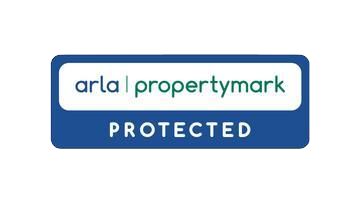Can Property Be Sold Before Probate? A Comprehensive Guide to Understanding the Process
- Jonathan Davies
- Jan 9
- 3 min read

Losing a loved one is an emotional journey, and managing their estate can be complex. One common question faced by executors or personal representatives is: Can property be sold before probate is granted? This blog aims to provide a detailed, clear answer, helping you navigate this process confidently.
What Is Probate and Why Is It Necessary?
Probate is a legal process that gives an executor or administrator the authority to manage the deceased’s estate. This includes paying debts, distributing assets to beneficiaries, and selling property.
If the deceased owned a property solely in their name, probate is typically required before completing the sale. However, there are nuances depending on how the property is owned and the circumstances of the estate.
Can a Property Be Marketed Before Probate?
Yes, you can put a property on the market before probate is granted. However, completing the sale—signing contracts and transferring ownership—requires a Grant of Probate (or Letters of Administration if there’s no will).
Key Points to Keep in Mind:
Inform Buyers: It’s vital to notify potential buyers and estate agents that probate is pending. Failing to do so may lead to delays or cause buyers to back out.
Valuation Is Essential: Executors must obtain a professional valuation to determine the property’s worth, which is also needed for inheritance tax purposes.
Exceptions: When Probate May Not Be Required
In certain situations, probate may not be necessary to sell a property:
Joint Tenancy Ownership: If the property is jointly owned as "joint tenants," ownership automatically transfers to the surviving co-owner.
Trust-Held Property: If the property is held in a trust, its sale might bypass the probate process.
Small Estates: Some jurisdictions offer simplified processes for small estates, depending on the property's value.
The Step-by-Step Process of Selling a Property During Probate
Here’s a breakdown of what to expect:
1. Valuing the Estate
Begin by assessing all assets, including property, bank accounts, and personal possessions. This valuation determines if inheritance tax is due and aids in probate applications.
2. Paying Inheritance Tax
If inheritance tax is applicable, it must be settled before probate is granted. Executors should work with a probate solicitor to ensure accuracy and compliance with tax laws.
3. Applying for Probate
The application for probate involves submitting the necessary documents to the Probate Registry. Once approved, you’ll receive the Grant of Probate, granting legal authority to finalize property sales.
4. Preparing the Property
Ensure the property is ready for sale. Minor repairs, cleaning, and staging can significantly increase its market value. Check that property insurance is in place during this time.
5. Listing and Marketing
Work with a trusted estate agent to market the property. Highlight any probate-related restrictions to potential buyers.
6. Accepting an Offer
Once an offer is accepted, notify the buyer’s solicitor that probate is pending. This ensures transparency and avoids complications later.
7. Exchanging Contracts and Completing the Sale
With the Grant of Probate in hand, contracts can be exchanged, and the sale can proceed to completion. The proceeds from the sale are then distributed according to the will or intestacy rules.
Challenges and Pitfalls to Avoid
Under-Valuation: Selling below market value could lead to disputes from beneficiaries. Obtain multiple valuations to ensure fairness.
Delays in Probate: Probate can take several months, potentially frustrating buyers. Keeping them informed helps manage expectations.
Legal Disputes: If beneficiaries disagree with the sale, this can complicate matters. Executors must act in the best interest of all parties.
Should You Seek Legal Advice?
Probate and property sales can be legally intricate. Seeking advice from a probate solicitor ensures compliance with laws, proper valuation, and efficient handling of taxes. A solicitor can also mediate disputes, offering peace of mind during a challenging time.
Conclusion
While selling a property before probate is not fully possible, you can take proactive steps such as marketing and preparing the property for sale. By understanding the rules, informing all parties, and seeking professional advice, you can streamline the process and honor your loved one’s wishes.
For a stress-free probate experience, consult with an experienced probate solicitor who can guide you every step of the way.




.png)




